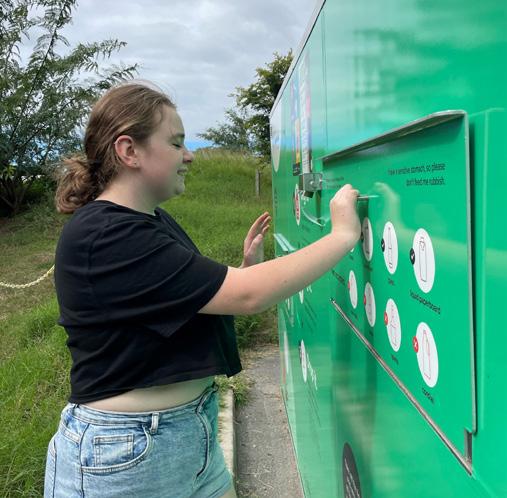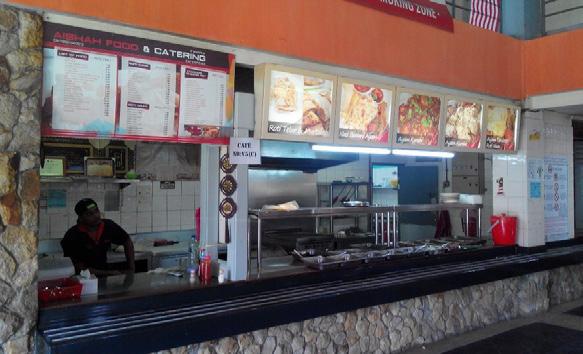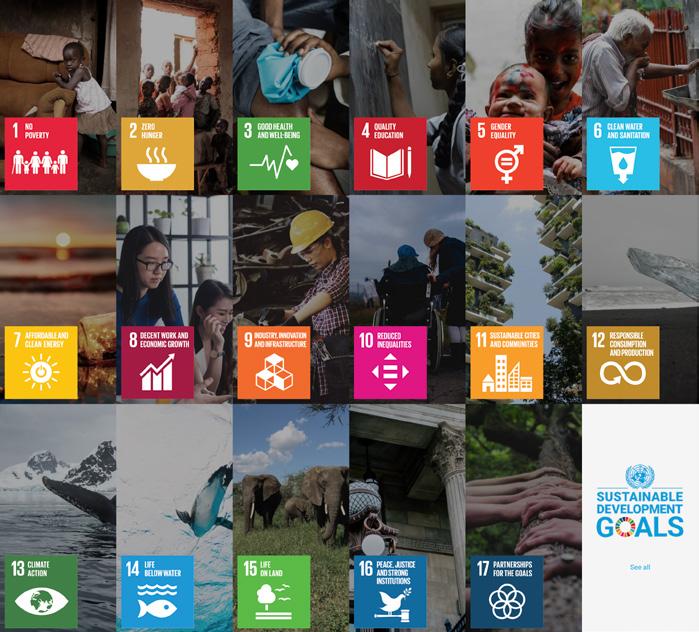
4 minute read
ACUHO-I South African Green Campuses Conference at a glance
Njabulo Emmanuel Maphumulo Executive Head: Residential Education, ACUHO-I South African Chapter
Advertisement
The launch of the Green Campuses Conference (GCC) was supported by the Department of Higher Education and Training (DHET) Minister in 2012 to promote the climate change interventions in South Africa following COP17. A call was made by the DHET on higher education institutions leaders to support sustainability commitment and help to build the respective green campuses initiatives. These institutional initiatives are meant to provide students with the know-how and skills needed to address sustainability, environmental awareness, climate change, and greening and to allow them to benefit from the economic opportunities that arise from the solutions they help develop. The key aims of the respective green campuses initiatives are to encourage students and staff to think green, become green, and use bicycles and buses; to teach them how to retro-fit buildings and create green buildings; to ensure that universities procure green products and services; to structure curricula to include more focus on sustainability; to reduce resource usage by recycling, and to run resource usage audits.
Since the launch of various green initiatives in respective institutions, the Nelson Mandela University hosted the 1st Annual Green Campuses Conference in partnership with the Association of Colleges and University Housing Officers - International as a platform for national green benchmarking. Since then there has been an increasing interest and participation by different institutions, especially in the student housing sector.
The Green Campuses Conference adopts the strength-based approach that concentrates on the inherent strengths of individuals, groups and organisations. It is a platform for positivity and new energy, and further offers the best way to share and benchmark with each other, and to seek feedback from peers. Both formally, through the delivery of papers and the presentation of poster sessions, and informally through oneon-one or small group conversations, a surprising amount of professional support and advice is given to various participating institutions.
…continued next page
The Green Campuses Conference adopts the strength-based approach that concentrates on the inherent strengths of individuals, groups and organisations. It is a platform for positivity and new energy, and further offers the best way to share and benchmark with each other, and to seek feedback from peers.
Continued from previous page

Attendees of the Green Campuses Conference 2022 from the Cape Peninsula University of Technology during the opening ceremony
The main expected outcome of the Green Campuses Conference is to inform the National Framework for “Recreating the greener future” in South Africa, subsequently, the additional outcomes are:
• Gathering of stakeholder input toward the development of a shared strategic framework and implementation plan for a capacity development programme related to green skills; • Provision of a national, continental and international overview of green campus development to help domestic participants to develop a benchmark of where they are comparatively; and • Fostering the development of a multistakeholder green campus development community of practice, to facilitate shared learning and public-private partnerships among members. These outcomes translated to various interventions aimed at assisting the institutions to contribute to the sustainable development
The first round of intervention focused mainly on educational awareness and behaviour change, amongst campus communities about climate change, and capacity building on identifying the practical green campus programs that can be initiated at the campus level to mitigate the impact of climate change. Noticeable changes to campus infrastructure were needed to conserve energy and other resources, human behaviour is a potentially large contributor to a smaller campus footprint.
Ever since this intervention, students across the country are actively engaged in teaching and influencing members of the campus community about how individual behaviours contribute to climate change—and about the opportunity for making a positive difference collectively. Furthermore, the students attend college and university primarily for the coursework, and those who live on campus spend more time in their living spaces than they do in classrooms. These student residences, not surprisingly, have become living and learning communities for many campus sustainability actions; often all it takes is one or two motivated students with a bright idea to get something started. From peer outreach programs to inter-residences energy competitions, students have been engaging with one another, staff and with campus-wide to reduce waste, conserve resources and spread the word about sustainability.


References Hall, M. (2008). Green campus policy framework. Office of the Deputy Vice-Chancellor, University of Cape Town.
Mafongosi, K. N., Awuzie, B. O., & Talukhaba, A. A. (2018). Exploring stakeholders’ perceptions of the green campus initiative in south African higher education institutions. Journal of Construction Project Management and Innovation, 8(Supplement 1), 2209-2218.
Purushottam, N., & Rwelamila, P. D. (2015). Green campus initiatives as projects: can creating conducive internal university project environment a key to success?.
Shange, H. S. (2021). The role of Green Campus Initiative (GCI) as integral part of environmental and sustainable resources utilization: a case study of Durban University of Technology (Doctoral dissertation).
This article is in relation to the following Sustainable Development Goals (SDGs):








